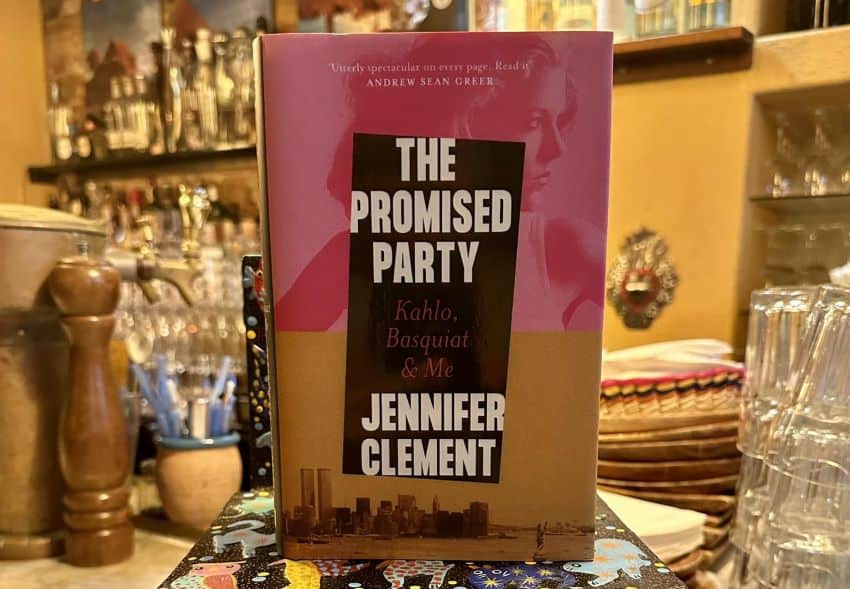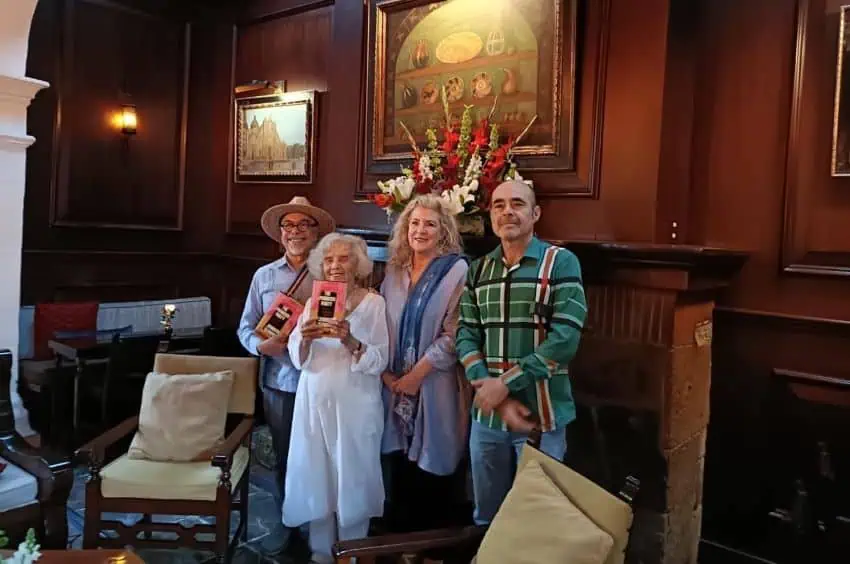Award-winning author Jennifer Clement is deeply influenced by her life experiences in Mexico and New York. Her new book, “La Fiesta Prometida” (The Promised Party), is an intimate and nostalgic reflection on her past, social and cultural changes and the Mexican identity. Speaking to Mexico News Daily, Clement shared her inspirations, the central themes of her book and the importance of memory.
Through our conversation, we explored how these fragmented memories and personal experiences intertwine to form a rich and complex tapestry that reflects the reality of two distinct cities and eras.
“Growing up in Mexico, I knew the end of love was everywhere.”

From her childhood in Mexico City, Clement felt the omnipresence of the end of love. In “The Promised Party,” this feeling is expressed through the losses and heartbreaks that are a fundamental part of the narrative and the author’s life.
The work also reflects a kind of personal odyssey. In the last chapter, Clement explores her return to Mexico after spending much of her adult life in the United States. She describes Mexico as having “a particular anarchy, where we know that all is lost.” This fatalistic perspective is something deeply rooted in Mexican identity and resonates with legendary Mexican poet Sor Juana’s sonnets against hope.
“Those were other times. Art was above anything else at that time.”
Clement also delves into common family dynamics of the era and the central figure of Chona, her nanny, who played a more significant maternal role than her own mother: “Chona was really, in profound terms, my mom, much more than my mom,” she explained. At a time when parents were often absent and art was above all things, her relationship with Chona became an emotional pillar. This parental absence, was a characteristic of Clement’s generation, contrasting with the current generation’s greater concern and attention to their children. “If one looks at the history of Mexican intellectuals and artists, notably many, they have stories with their children that are tragic and very sad.”
The author also discusses how the unusual permissiveness of the past provided her with unusual experiences, such as her visit to the public baths with Chona: “How did they allow it? I was like some kind of strange creature there, inside the steam bath where the poorest people in Mexico went because they didn’t have bathrooms.”

These memories are part of a larger mosaic that reflects the extreme poverty and illiteracy of the time. Clement uses these fragments to create a collective memory that encompasses her personal life and the capital’s history. “Yes, it’s my story, my memory; it’s how I became a writer, the path I took; but it’s also a book about times: that time in Mexico, that time in New York.”
The city as a character
In Jennifer Clement’s literature, the city is not only a setting but a character in itself. Thus, Clement constructs the narrative of The Promised Party in fragments, reflective of the way in which human memory works.
The book is divided into two parts: Mexico City and New York City, covering the first 27 years of Clement’s life. This non-linear structure allows for a deeper exploration of the chance experiences and influences that shaped her life and writing career. “The book also has a lot to do with luck, chance, and fate. It starts with Burroughs and ends with Burroughs, with this very strong scene where he tells that all is lost.”
Clement’s life has been eventful. From her chance meeting with Basquiat’s girlfriend while they were working as waitresses in New York at a Mexican restaurant, to the stories told by notable figures such as Ana Maria Xirau and Elena Poniatowska, each fragment contributes to a narrative rich in context and meaning.

“I had such an exceptional childhood and youth. I met and was influenced by so many people. And there is chance, when my parents arrived in Mexico, of all the thousands of streets they could have chosen to live on, they chose the same street where Frida and Diego lived. I would bathe in Frida’s now famous bathtub, but at that time, she wasn’t famous; there was no recognition on my part that I was in Frida Kahlo’s bathtub; it was my friend’s house and my second home. The same with Basquiat. Nobody was famous; the only famous person in New York was Andy Warhol,” she muses.
“And I talk about it in the book: the amount of Basquiat’s work, Suzanne and I threw away. We would be multimillionaires now, but it wasn’t important to us. It was the crap the ex left behind.”
“This book, deeply, is an act of love for Mexico.”
One of the most powerful themes in The Promised Party is Clement’s unconditional love for Mexico. “It doesn’t matter if you are rich or poor, a Mexican outside of Mexico will only think about Mexico.” This love manifests itself in her constant desire to return to her country despite having lived in places like New York. Clement describes this feeling as a Mexican inevitability, a need to be in Mexico despite the difficulties. This love is also reflected in Mexico’s cultural richness, something the author proudly highlights, mentioning the painters, architects, musicians, sculptors and writers who have put Mexico in a prominent place in the global art scene.
Despite the challenges that might be involved in publishing Mexican-themed books in English and abroad, Clement has managed to capture the interest of publishers worldwide. The Promised Party has already been sold to be published in several countries, including Mexico, the United States, the United Kingdom, Turkey and Sweden. This global interest underscores the relevance and universal appeal of the stories and experiences she tells in her work.
The Promised Party is more than just an autobiography; it is a celebration of memory, an exploration of identity and a testament to Jennifer Clement’s undying love for Mexico. Through her narrative fragments, Clement manages to weave a story that resonates with the nostalgia and complexity of a life lived between two worlds. This book preserves not only her personal memories, but also the stories and historical context that could be lost in the passage of time.
The book is now available in England and the United States. The Promised Party will debut in Mexico in July. In addition, the rights have already been sold to an English filmmaker to make the movie. And Spielberg bought The Widow Basquiat. “There will be two projects about these books and this era coming soon.”
Camila Sánchez Bolaño is a journalist, feminist, bookseller, lecturer, and cultural promoter and is Editor in Chief of Newsweek en Español magazine.
